Veranstaltungsarchiv Thomas Mann House
Juni 2023
Poesie mit Ghayath Almadhoun
Goethe-Institut Washington, D.C. (1377 R St. NW Ste. 300 Washington, DC 20009)
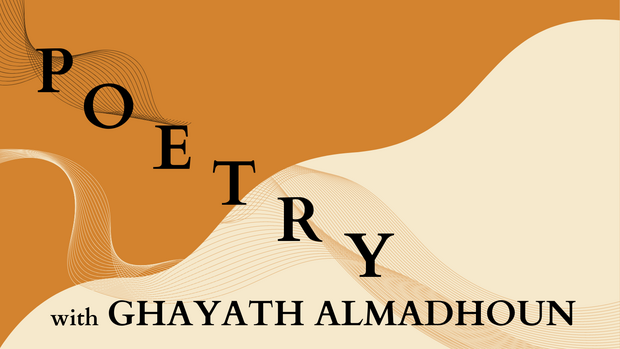
Info
Nehmen Sie teil an einer Abendveranstaltung mit Thomas Mann Fellow Ghayath Almadhoun mit Gedichten über Krieg, Empathie, Vertreibung, Leid, Liebe und Hass. Mehr Information folgen in Kürze!
*Die Veranstaltung findet in englischer Sprache statt.*
Ghayath Almadhoun is a Palestinian poet born in Damascus, Syria, who emigrated to Sweden in 2008 and now lives in Berlin. He published four poetry collections in Arabic, and his work has been translated into dozens of languages. Ghayath Almadhoun collaborated with other poets and artists, and his poetry has been part of the work of U.S. artist Jenny Holzer, German musician Blixa Bargeld, and others. His latest collection Adrenalin, published in English by Action Books 2017, was among the SPD Poetry Bestsellers in the U.S. and nominated for the 2018 Best Translated Book Award. His selected poems Ein Raubtier namens Mittelmeer ("Predator called the Mediterranean") ranked top of the Litprom-Bestenliste 2018 of best books translated into German.
Teilnehmer
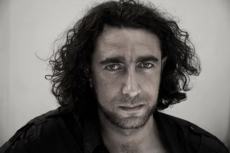
Ghayath Almadhoun is a Palestinian poet born in Damascus, Syria, who emigrated to Sweden in 2008 and now lives in Berlin. He published four poetry collections in Arabic, and his work has been translated into dozens of languages. Ghayath Almadhoun collaborated with other poets and artists, and his poetry has been part of the work of U.S. artist Jenny Holzer, German musician Blixa Bargeld, and others. His latest collection Adrenalin, published in English by Action Books 2017, was among the SPD Poetry Bestsellers in the U.S. and nominated for the 2018 Best Translated Book Award. His selected poems Ein Raubtier namens Mittelmeer ("Predator called the Mediterranean") ranked top of the Litprom-Bestenliste 2018 of best books translated into German.
Partner


Affective Landscapes – Photography & Cinema of the American West
Thomas Mann House (1550 N San Remo Dr, Pacific Palisades, CA 90272)

Info
Die Thomas Mann Fellows und Amerikanistikwissenschaftlerinnen Carolin Görgen und Heike Paul führen ein Gespräch mit dem Fotohistoriker und Fotografen Jordan Reznick über die Geschichte und Gegenwart visueller Kulturen des amerikanischen Westens. Das Gespräch wird von der in L.A. lebenden bildenden Künstlerin und Pädagogin Erin Cooney moderiert.
*Diese Veranstaltung findet in englischer Sprache statt.*
For a long time, Californian landscape photography and U.S. environmentalism have been inextricably related in the public imagination. The monumental vistas of Carleton Watkins, Ansel Adams, and many others have suggested that aesthetically-pleasing prints would fuel environmental awareness. Yet, California’s long history of mineral extraction, railroad enterprise, and violent displacement of Indigenous populations — and their connection to the photographic medium — complicates these wishful representations. Did popular photography, such as the practices of the California Camera Club, leave an ecological imprint on the land that is tangible to this day? 2023 Thomas Mann Fellow Carolin Görgen explores these and other questions around the political ecologies of the Western camera. Interesting overlaps and synergies arise in connection with the work of the American Studies scholar Heike Paul, who was a 2022 Fellow at the Thomas Mann House. Paul, whose research deals intensively with film, offers fascinating insights into ideas of Western frontiers and myth-building: The American West has long been the site of Western films and melodramas: Melodramas of introspection, of encounter, conflict and triumph, unfold against a grandiose landscape reinforcing notions of good and evil and, above all, “Americanness.” Traditional cinematic melodramas of tormented manhood have recently given way to more complex and nuanced forms of identity politics in films such as Power of the Dog (2021) and television series such as Godless (2017). Do these revisionist new types of 'anti-Westerns' change how we politically and aesthetically perceive the American West as an affective landscape? Jordan Reznick, a photographer and art historian who focuses on the interrelations between photography, race, transgender studies, and settler colonialism, will join the conversation. In their work, Reznick’s trans feminist lens replaces the objective facticity of the photograph with the truth of affect and the honesty of the relationship between subject, photographer, and viewer. Reznick’s series of landscape photography, Seeing Settler Seeing (in progress), reinterprets survey photographs of the Los Angeles Aqueduct, in which water stolen from the Indigenous Owens Valley Paiute land flows to Los Angeles.
Against the backdrop of the Thomas Mann House annual topic on the relationship between arts and politics, the three speakers will engage in a conversation about past and present implications of visual cultures of the American West, drawing on their various disciplinary backgrounds. The conversation will be moderated by Erin Cooney.
Teilnehmer:innen

Carolin Görgen is Associate Professor of American Studies at Sorbonne Université, Paris. After studying American Studies and Art History in the Netherlands, the US, and France, she obtained her PhD from the University Paris-Diderot and the Ecole du Louvre in 2018. Her research focuses on the photographic history of California and the American West. Her work has received support from the Terra Foundation for American Art, the Beinecke Library at Yale, the Huntington Library, and the Amon Carter Museum. She serves on the editorial board of the journal Photographica. Among many other publications, Görgen is the author of the 2021 article “Californian Women Photographers in the U.S. Archival Landscape: Toward a More Inclusive History of American Photography.” She is a 2023 Thomas Mann Fellow.

Heike Paul is Professor of American Studies, with a focus on North American literature and Cultural Studies at the University of Erlangen-Nuremberg. Her research interests in the field of a culturally hermeneutically oriented American Studies deal, among other things, with cultural patterns of community formation in the United States. In 2018, she was awarded the Leibniz Prize. Paul is a member of the Bavarian Academy of Sciences and Humanities and director of the Bavarian American Academy, in which she is deeply committed to transatlantic networking. Her publications include American Civil Sentimentalism (2021), The Myths That Made America (2014), and, most recently, the Lexicon of Global Melodrama (2022).

Jordan Reznick is a photo historian and photographer as well as a GRI/NEH Postdoctoral Fellow at the Getty Research Institute. They will join Grinnell College as an Assistant Professor of American Studies in the fall. Their current research project describes how Indigenous ecological science shaped nineteenth-century landscape photographs in California. Reznick’s publications include “Through the Guillotine Mirror: Claude Cahun’s Photographic Theory of Trans against the Void” in Art Journal (2022) and “Indigenous Space: Hodinöhsö:ni’ Sky World and the Territories of American Art” forthcoming in American Art (2023).

Erin Cooney is a visual artist and educator based in Los Angeles. Her video, installation, and performance work investigates point of view and its role in determining the kind of worlds we experience and build. Erin is a Lecturer in UCLA’s Design Media Arts Department and is an Affiliated Faculty to UCLA’s Counterforce Lab, which uses art and design to engage with ecological crisis and its ties to environmental injustice. Erin received a BA in Philosophy from the University of Notre Dame, studied Graphic Design at Art Center College of Design, and received an MFA from UCLA in Design Media Arts.
Partner
Eine Veranstaltung in Kooperation mit dem Getty Research Institute.


Ecologies of the Western Camera: Photographic Practice in Early Twentieth-Century California.
Munger Research Center – Seaver Classroom 1 & 2 (1151 Oxford Rd, San Marino, CA 91108)
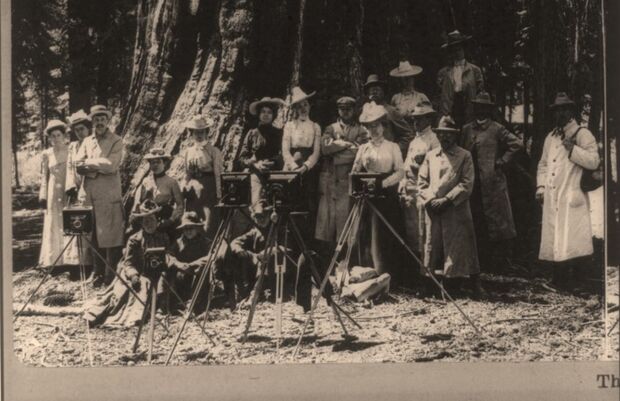
Info
2023 Thomas Mann Fellow Carolin Görgen (Sorbonne Université) beleuchtet die Rolle der Fotografie im Kalifornien des frühen zwanzigsten Jahrhunderts und hinterfragt die gängige Darstellung westlicher Entdecker:innen und Künstler:innen vor dem Hintergrund imperialistischer Expansion.
*Diese Veranstaltung findet in englischer Sprache statt.*
Im vergangenen Jahrhundert haben kalifornische Fotograf:innen in unserer Vorstellung als umweltbewusste Akteur:innen existiert, deren majestätische Darstellungen der westlichen Landschaft dazu beigetragen haben, das fragile Ökosystem des Staates zu erhalten und zu schützen. Carolin Görgen untersucht in ihrem Vortrag die Arbeiten des größten Kameraclubs in den USA des frühen 20. Jahrhunderts - des California Camera Club mit Sitz in San Francisco - und hinterfragt die gängige Darstellung von Künstler:innen, die den Westen in einem scheinbar wohlwollenden Klima erforschten. Sie lenkt die Aufmerksamkeit auf die ökologischen Auswirkungen der fotografischen Praxis in Kalifornien um 1900, indem sie die Spannungen zwischen ästhetisch ansprechenden Landschaftsbildern und ihrem materiellen Nachleben nachzeichnet.
Anhand einer Vielzahl von fotografischen Objekten und Manuskripten, von denen sich viele in der Huntington Library befinden, wird sie untersuchen, wie die scheinbar bewahrende Agenda des Clubs mit der imperialistischen Expansion, der Enteignung der Ureinwohner und der oft gewalttätigen Umgestaltung des Landes verwoben war. Im Dialog mit neueren ökokritischen Forschungen wird die Frage gestellt, inwieweit das vorherrschende Verständnis der Fotograf:innen von der westlichen Umwelt direkt mit dem sozialen Gefüge des Clubs und den seit langem bestehenden Vorstellungen von der kalifornischen Fotografie als inhärent umweltbewusst verbunden war.
Die Veranstaltung ist öffentlich zugänglich. Eine Reservierung ist nicht erforderlich.
Teilnehmerin

Carolin Görgen ist Associate Professor für Amerikanistik an der Sorbonne Université, Paris. Nach dem Studium der Amerikanistik und Kunstgeschichte in den Niederlanden, USA und Frankreich promovierte sie 2018 an der Universität Paris-Diderot und der Ecole du Louvre. Ihre Forschungen beschäftigen sich mit der Fotogeschichte Kaliforniens und des amerikanischen Westens. Ihre Arbeit wurde von der Terra Foundation for American Art, der Beinecke Library in Yale, der Huntington Library und dem Amon Carter Museum unterstützt. Darüber hinaus ist sie Redaktionsmitglied der Fachzeitschrift Photographica. Neben vielen anderen Publikationen ist Görgen Autorin des 2021 erschienenen Artikels "Californian Women Photographers in the U.S. Archival Landscape: Toward a More Inclusive History of American Photography". Sie ist 2023 Fellow am Thomas Mann House in Los Angeles.
Partner
Eine Veranstaltung der Huntington Library.
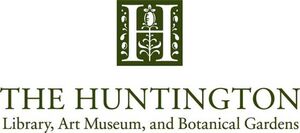

Carpool Community Engagement – How Civil Society Shapes L.A.’s Neighborhoods: Part II (Video Release)
Online

Info
Thomas Mann Fellows Rubina Zern-Breuer, Innovationsforscherin, und Swenja Zaremba, Kulturwissenschaftlerin, erkunden in einer zweiteiligen Video-Interviewserie die unterschiedlichen Ansätze ehrenamtlichen Engagements und zivilgesellschaftlicher Initiativen in Los Angeles. Begleiten Sie die beiden auf einer Tour durch die Stadtteile von L.A. und erfahren Sie, wie diese unterschiedlichen Projekte den lokalen Gemeinschaften helfen und was wir in Deutschland von diesen Ansätzen lernen können.
*Die Interviewserie ist in englischer Sprache verfügbar.*
During their Fellowships at the Thomas Mann House, historian and innovation researcher Rubina Zern-Breuer and Swenja Zaremba, research associate at the Centre for Cultural and General Studies at the Karlsruhe Institute of Technology, focused on meaningful interactions between public administration and civil society. The two met with a variety of activists, social workers, and community organizers to talk about their practices and experiences in the City of Los Angeles. From infrastructural challenges to problems with racism, housing, gang criminality and poverty: How can local participatory approaches strengthen trust, help individuals and repair urban infrastructures? What transformative potential for public organizations as well as for civil society networks can these approaches hold? Together with their guests, they explore how collaborative approaches on the local level can effect communities – and what we can learn from them for Germany in terms of trust and collaboration.
Join Rubina and Swenja in the Thomas Mann House van on their tour through different Los Angeles communities! Learn more about the different approaches, methods, projects and civil society initiatives and how they make a difference in the city.
Episode 2 includes interviews and tours with Kiara Aileen Machado, Visual Artist, Paul Vandeventer, Founder of Community Partners, and Fredid Toledo, Administrative Assistant at Homies Unidos.
Don't miss our first series of interviews in Part I with Jordan Wynne (United Way of Greater Los Angeles), Blair Imani (Author & Activist), and Tony Brown (Heart of Los Angeles)!
Teilnehmerinnen
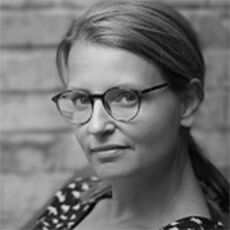
Rubina Zern-Breuer is the head of the transfer center at the University of Stuttgart. Between 2018 and 2022 she has been research project coordinator at the German University of Administrative Sciences Speyer, where she has headed the Innovation Lab for Public Administration and also taught and published in the field of public innovation. After studying Modern and Contemporary History as well as Sociology at the University of Karlsruhe, she completed her PhD at the University of Würzburg and spent time abroad at the DHI Rome. In addition to coordinating public science projects at ZAK | Centre for Cultural and General Studies at Karlsruhe Institute of Technology, Rubina Zern-Breuer held further positions at the University of Heidelberg and as a senior researcher at the Fraunhofer Institute for Systems and Innovation Research ISI. She has been a Fellow at InnOsci / Stifterverband and is a 2022 Thomas Mann Fellow.
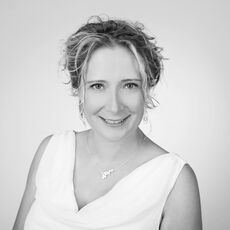
Swenja Zaremba heads the German network of the Anna Lindh Foundation on behalf of the Goethe-Institut e.V. and is research associate at the Centre for Cultural and General Studies (ZAK) at the Karlsruhe Institute of Technology (KIT). She studied Literature, Journalism and Communication Science in Karlsruhe and Nancy, France. In addition to coordinating public science projects at ZAK, other positions took her to the headquarters of the Goethe-Institut as a trainee and to the University of Damascus for a teaching assignment. She publishes on topics in the field of international cultural relations, civil society and participation, interculturality and internationalization. She curates international cultural festivals and activities, e.g. the storytelling project euromedcitizenreporters.org. She was a member of the working group "Civil Society in Foreign Cultural and Educational Policy" of the German Foreign Office, Fellow at the Heinrich Böll Foundation and selected participant for College of Europe's Course El-Hiwar on Euro-Arab Relations. She is a member of the working group “Middle East/North Africa" of the German Foreign Office. Swenja Zaremba is a 2022 Thomas Mann Fellow.
Teil I
Teil II
Partner






